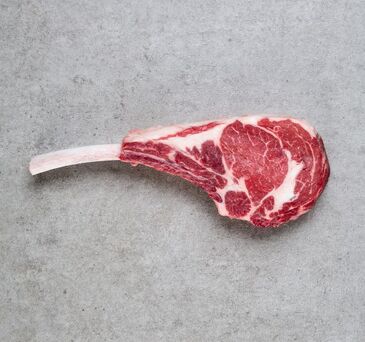Nutritional information surrounding meat can become quite confusing, there are lots of different opinions out there, and it can become overwhelming when trying to figure out what's true and what's not.
The boring truth is, a balanced diet containing lots of different types of food - meat, fish, fruit and veggies - is well proven to be the healthiest way to eat.
We are what's known as 'Omnivores', meaning whilst we are lucky enough to be able to eat almost everything, the flip side is we *NEED* to eat a bit of everything in order to get all the essential vitamins and minerals that our bodies need to survive and thrive.
Keep it interesting, eat a varied diet, don't heap too much pressure on yourself and enjoy your food!
Red meat, which includes beef, lamb and - surprisingly - pork, is a natural source of many essential nutrients, and has an important role to play in a healthy balanced diet.
Here is some information from our friends over at Scotch Kitchen on red meat and why its important to include it in a balanced diet:
Balanced Diet
No single food contains all the nutrients needed for good health, so the aim should be to include a wide variety of food in the diet.
Balance is the key.
Lean red meat can form part of a healthy balanced diet which contains plenty of fruit, vegetables and starchy foods such as wholemeal bread and brown rice; some protein rich foods such as meat, fish, eggs and lentils; and some dairy foods.
Discover Nutrients
Red meat is:
– Naturally rich in protein
– Low in sodium
– Provides a range of vitamins and minerals which contribute to good health and wellbeing, including iron, zinc, Vitamin B12, Vitamin D and iodine
– Beef, in particular, is a valuable source of easily absorbed iron*
*Research has shown that women and young girls are most at risk of iron-deficiency
Discover Portion Sizes
The government recommends that you can eat up to 70g (cooked weight) of red meat per day.The majority of people in the UK are within this target. Remember most red meat dishes can be frozen after cooking so this can help with storing leftovers and advance meal preparation, reducing food waste.
Red meat: understanding the facts
Protein helps the maintenance of normal bones and growth in muscle mass.
Red meat is naturally rich in protein, low in salt and provides a range of vitamins and minerals that contribute to good health, including iron, potassium, zinc, vitamin B12 and niacin.
Potassium contributes to normal muscle and nerve function and helps support normal blood pressure.
B vitamins can help with energy production in the body. They also help with the normal function of the immune system, psychological function and the reductions of tiredness.
Zinc helps with fertility and reproduction.
Red meat is low in salt (sodium). Reducing consumption of sodium supports normal blood pressure.
Our bodies absorb iron and zinc from meat more readily than they can from plants.
This information was taken from Scotch Kitchen. Visit their website for more information on red meat and supporting Scottish farming.
DISCOVER OUR OTHER Articles

Showcasing Scotland 2024
13.03.2024 NewsRead MoreWe were absolutely delighted to attend Showcasing Scotland 2024, an annual event by Scotland Food and Drink

The Tomahawk Steak
10.02.2024 NewsRead MoreIn the world of premium cuts of meat, the tomahawk steak stands out—not just for its impressive size and flavour, but for the experience it offers both the cook and the diner. As butchers, we're...

Pairing Steak and Wine
31.01.2024 NewsRead MoreIf you're like us, you love the pairing of steak and wine. We often get asked about our recommendations for steak cuts and wine pairings, so we thought we would offer up some suggestions. Remember -...



